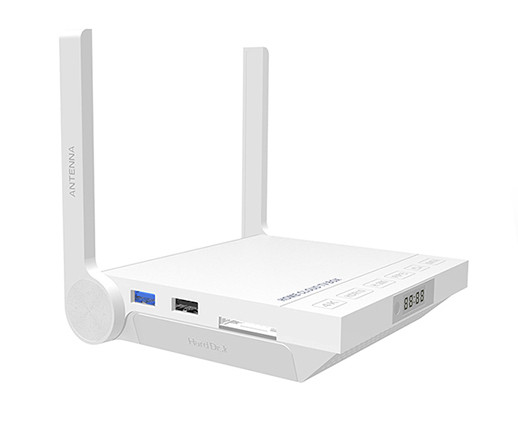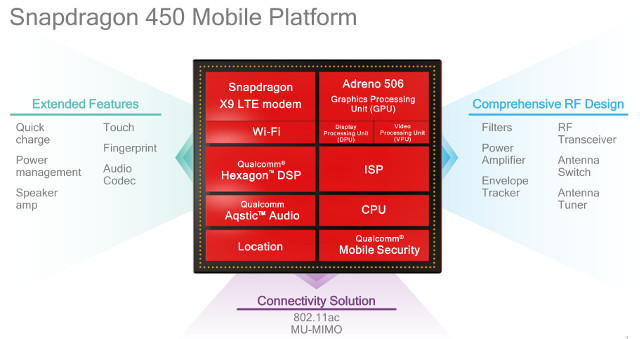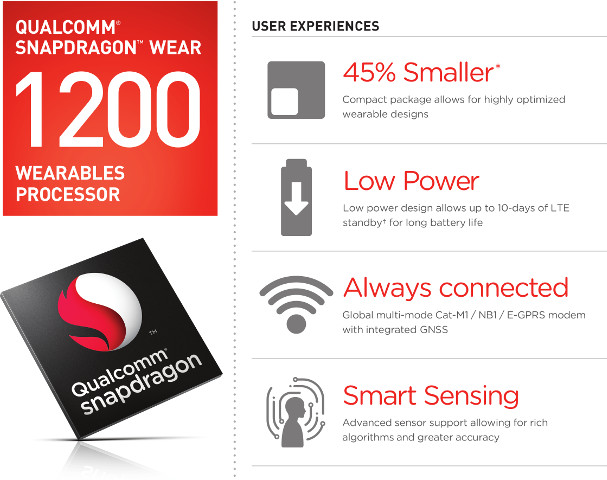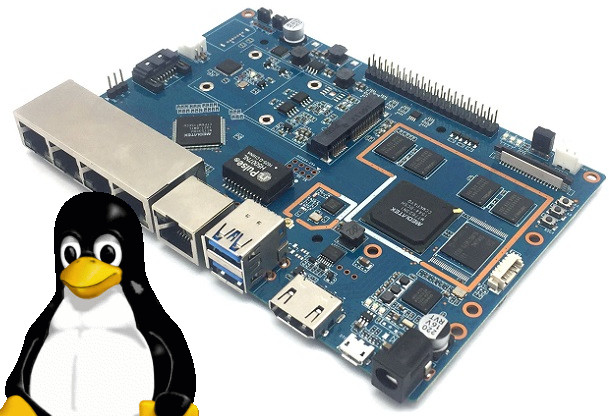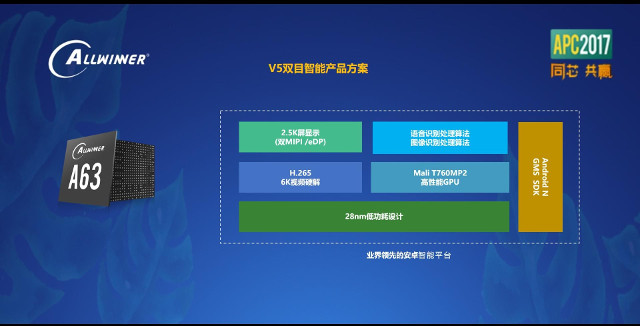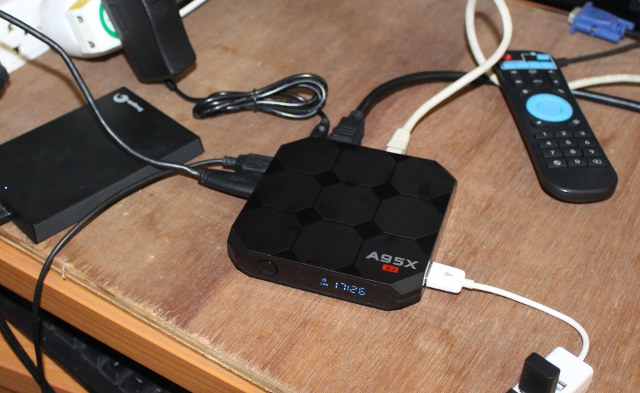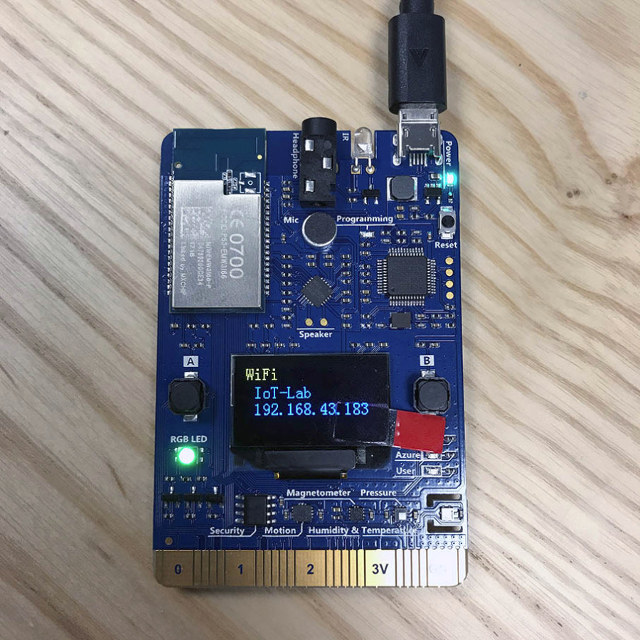Realtek RTD1295 based Android TV boxes are usually interesting devices as they play 4K videos relatively well – minus 4K H.264 @ 30 fps -, support HDMI input with PVR and PiP functions, and often come with a SATA interface for NAS functions handled with OpenWrt. Zidoo X9S and EWEAT R9 Plus are examples of such devices, and I found them to work pretty well in my reviews, but they are quite pricey with prices ranging from $130 to $200 (with internal SATA bay) including shipping. A cheaper option is Beelink SEA I, which I started to review, but one firmware update wiped out the HDCP key, and the product became unusable with the company unwilling/unable to provide the HDCP key. There’s now a new even cheaper model with LAKE I Home Cloud TV box sold for $77.99 on GearBest with GBLAKEI coupon. LAKE I Home Cloud TV box specifications: […]
Qualcomm Snapdragon 450 is a 14nm LTE “Mobile Platform” for Mid-Range Smartphones and Tablets
Qualcomm has a made several announcements at Mobile World Congress Shanghai 2017, with processors like Snapdragon Wear 1200 Wearables SoC, as well as Snapdragon 450 octa-core mobile platform, allegedly the first 14nm processor made for mid-range mobile devices. Qualcomm Snapdragon 450 specifications: CPU – 8x ARM Cortex A53 cores @ up to 1.8 GHz GPU – Adreno 506 GPU with OpenGL ES 3.1, OpenCL 2.0 Full, DirectX 12, GPU tessellation, geometry shading DSP – Hexagon 546 DSP Memory I/F – LPDDR3 Display – Full HD 1080p60; Qualcomm EcoPix,TruPalette, improveTouch technology Audio – Qualcomm Aqstic with VoLTE w/Ultra HD Voice (EVC), high-fidelity music playback (24-bit/192 KHz), Dolby 5.1 Modem – Snapdragon X9 LTE modem up to 300 Mbps download (Cat 7) and 150 Mbps uplink (Cat. 13) Wireless Connectivity – 802.11ac MU-MIMO, Gen8C Lite location technology, Bluetooth 4.1 LE USB – USB 3.0 interface Camera – Up to 13MP dual camera, […]
Qualcomm Snapdragon Wear 1200 Platform for Wearables Supports LTE Cat M1 and NB1 (NB-IoT)
After Snapdragon Wear 2100 and 1100 launched last year , Qualcomm has announced a new Snapdragon Wear 1200 platform still designed for wearables, but with lower power consumption, less processing power, a more compact package, and built-in support for LTE IoT communications standards such as LTE Cat M1 and LTE NB-IoT (Cat NB1). Qualcomm Snapdragon Wear 1200 key features and specifications: CPU – ARM Cortex A7 @ 1.3 GHz Memory / Storage – Support for discreet or MCP NAND and LPDDR2 Display – Support via SPI for simple UI and displays Modem Global multi-mode supporting Cat-M1 / NB1 / E-GPRS. Supports LTE FDD and TDD for Cat-M1 and E-GRPS and FDD only for Cat-NB1 Up to 300 kbps downlink and 350 kbps uplink for Cat-M1 10 kbps download and 60 kbps upload speeds for Cat-NB1 Integrated voice support for VoLTE Other Connectivity – Pre-integrated support for Qualcomm 11ac Wi-Fi […]
Banana Pi BPI-R2’s U-boot & Linux 4.4 Source Code & MediaTek MT7623N Datasheet Released
Banana Pi BPI-R2 is a multimedia router board powered by MediaTek MT7623N quad core processor with 2GB RAM, 5 Gigabit Ethernet ports, up to two SATA ports, two USB 3.0 ports, HDMI output, and I/O headers. The board is not for sale yet, but the company has recently released the source code with U-boot and Linux 4.4.70, as well as a datasheet for MediaTek MT7623N processor. The source code can be found on Github, so let’s see if we can build it:
|
1 2 3 4 5 6 7 8 9 10 11 12 13 14 15 16 17 18 19 20 21 22 23 |
git clone https://github.com/BPI-SINOVOIP/BPI-R2-bsp cd BPI-R2-bsp/ sudo apt install gcc-arm-linux-gnueabihf ./build.sh ./build.sh NOTICE: new build.sh default select BPI-R2-720P and pack all boards supported boards: BPI-R2-720P BPI-R2-720P configured. Now run `make` This tool support following building mode(s): -------------------------------------------------------------------------------- 1. Build all, uboot and kernel and pack to download images. 2. Build uboot only. 3. Build kernel only. 4. kernel configure. 5. Pack the builds to target download image, this step must execute after u-boot, kernel and rootfs build out 6. update files for SD 7. Clean all build. -------------------------------------------------------------------------------- Please choose a mode(1-7): 1 |
After a couple of minutes, the build would end with:
|
1 2 3 4 5 |
usr/lib/u-boot/bananapi/ usr/lib/u-boot/bananapi/bpi-r2/ usr/lib/u-boot/bananapi/bpi-r2/BPI-R2-720P-2k.img.gz Build success! |
For the very last step, it asks you to login as root / sudoer, which it should not do… But we end up with the images, so at least it builds:
|
1 2 3 4 5 6 7 8 |
ls -lh ./SD/ total 27M drwxrwxr-x 2 jaufranc jaufranc 4.0K Jun 28 10:46 100MB -rw-rw-r-- 1 jaufranc jaufranc 22M Jun 28 10:46 4.4.70-BPI-R2-Kernel.tgz -rw-rw-r-- 1 jaufranc jaufranc 151K Jun 28 10:46 BOOTLOADER-bpi-r2.tgz drwxrwxr-x 3 jaufranc jaufranc 4.0K Jun 28 10:46 BPI-BOOT -rw-rw-r-- 1 jaufranc jaufranc 4.8M Jun 28 10:46 BPI-BOOT-bpi-r2.tgz drwxrwxr-x 4 jaufranc jaufranc 4.0K Jun 28 10:46 BPI-ROOT |
MediaTek has also been active by committing patchsets for MT7623 to the Linux Kernel Mailing List, so mainline Linux is an eventual possibility for […]
Allwinner A63 2K “Flat Panel” SoC Unveiled at APC 2017 Conference
Allwinner unveiled their latest A63 quad core Cortex A53 SoC for tablet at the APC 2017 conference in Zhuhai, Shenzhen, last week. The processor will be an upgrade to Allwinner A64 with a Mali-T760MP2 GPU, support for 2560 x 1600 displays, and a 6K H.265/VP9 video processing unit. Some of Allwinner A63 key features: CPU- Quad core Cortex A53 processor with 32KB L1 I-cache, 32KB L1 D-cache, shared 512KB L2 cache GPU – ARM Mali-T760MP2 “high performance” GPU with OpenGL ES 3.2 support VPU – 4K/6K VP9, H.265, and H.264 4K @ 30fps video decoder; Smartcolor 3.0 “video quality enhancement engine” Memory I/F – DDR3, DDR3L, LPDDR3, LPDDR2 Storage I/F – eMMC 5.0; TLC/MLC/SLC/EF NAND flash with 80-bit ECC Display I/F – Dual MIPI and eDP interfaces up to 2560 x 1600 resolution Audio – Support for multi-microphone array, multi-channel analog voice signal input and stereo ADC, DAC Package – […]
A95X R2 TV Box Review – Part 2: Android 7.1, Video & Audio Tests, and Benchmarks
In the first part of A95X R2 Rockchip RK3328 TV box review, I listed the specifications of the device, took a few photos, and reported about the chip used in the PCBA. I’ve now had time to play with the box, so I can report about my experience with Android 7.1, video & audio capabilities, and the performance of the device in the second part of the review. First Boot, Setup, and First Impressions I connected a USB 3.0 hard drive to the USB 3.0 port of the box, a USB keyboard to one of the USB port to take screenshots, and a USB hub with the RF dongles for my air mouse and gamepad in the remaining USB 2.0 port. I completed the hardware setup with Ethernet and HDMI cables, as well as the power supply. I then pressed the power button on the unit to start it up, […]
MXCHIP AZ3166 IoT Developer Kit is Designed to Work with Microsoft Azure
MXCHIP is a Shanghai based company designing and manufacturing WiFi IoT modules such as EMW3165, which has now made a development board based on their EMW3166 STM32+ Cypress module – called MXChip AZ3166 – specifically designed for Microsoft Azure cloud computing platform. MXChip AZ3166 board specifications: Wireless Module – EMW3166 WiFi module with STM32F412 ARM Cortex M4F MCU @ 100 MHz with 256KB SRAM,1MB+2MB SPI Flash, Cypress BCM43362 WiFi chip Display – 128×64 OLED display Audio – Audio codec, built-in microphone, and 3.5mm heaphone jack Sensors – Motion sensor, magnetometer, atmospheric pressure sensor, temperature and humidity sensor Expansion – Finger extension interface with 25 external I/O pins including GPIOs, I2C, I2S, UART, ADC, Reset, 3.3V, and GND Debugging – DAP Link emulator USB – 1x Micro USB port for power, programming, debugging Misc – 2x user buttons; 1x RGB light; 3x working status indicator; IR emitter; Security encryption chip Power Supply […]
IceZero Lattice iCE40 FPGA Board is Designed for Raspberry Pi Zero
Yesterday, we reported about Olimex’s open source hardware iCE40HX8K-EVB board with a Lattice iCE40 (HX8K) FPGA, and today, another iCE40 FPGA board, also open source hardware, appeared in my news feed with Trenz Electronic’s IceZero board specifically designed to be programmed using a Raspberry Pi Zero board. IceZero board specifications: FPGA – Lattice ICE40HX4K with 3520 logic gates, and 80 Kbit memory Storage – SPI Flash for FPGA self-configuration Misc – 3x User LEDs; User Clock: 100 MHz Expansion – 4x unpopulated PMOD Connectors; 40-pin Raspberry Pi female header Dimensions – 56 x 30.5mm (Raspberry Pi HAT Compatible) The board is supported by icoTC open source FPGA toolchain for Windows and Linux, which you can use in Raspberry Pi Zero (W), and other RPi board with a 40-pin header running Raspbian, as explained in that simple example in Github. Trenz electronic only shared part of the documentation, but you’ll find […]


